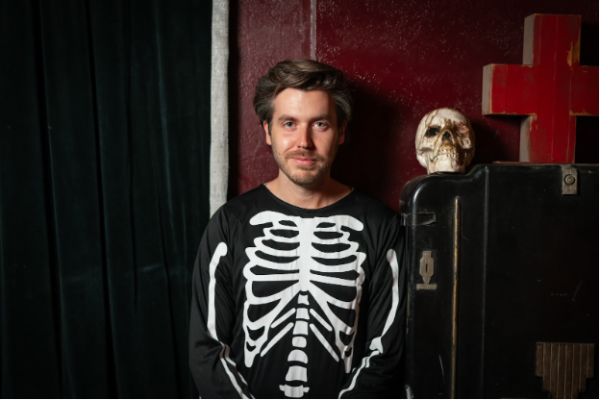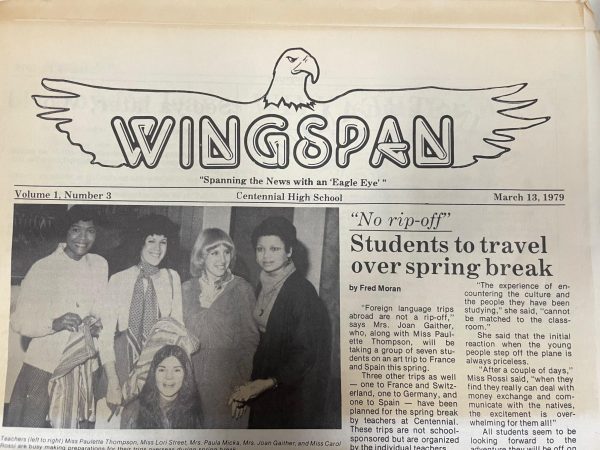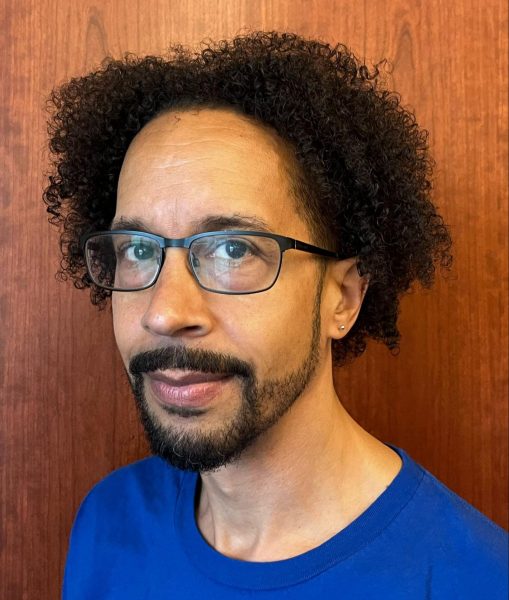“Don’t Say Gay” Bill Walkout
On Friday, March 11, 2022, Centennial students organized a walkout to show their opposition for House Bill 1557, better known as the “Parental Rights in Education” bill by supporters of the Florida law or the “Don’t Say Gay” bill by opponents of the legislation. The bill would prohibit discussion or teaching of the topics of sexual orientation and gender identity by school personnel or classroom third parties from kindergarten through 3rd grade. It also specifies that these same topics cannot be taught ever in a manner that is not developmentally appropriate for students according to state standards. While many believe the bill would only impact younger students, the latter part of the bill would also allow it to impact students of all ages.
The bill was passed on March 8, 2022 and officially signed by Governor Ron DeSantis on Monday, March 28. Many were not surprised by DeSantis’ support as he has a past of endorsing similar legislation and had positive opinions on the bill.
Students in schools all across the country have been organizing walkouts to show their opposition for the bill, prompting Centennial’s SAGA (Sexuality and Gender Alliance) club to plan a walkout of their own. The club elected three speakers to give speeches opposing the bill, speaking on their own experiences and how the bill could affect LGBTQ+ students.
Many argue that the bill would have a negative impact on the mental health of students who do identify as LGBTQ+ as the bill targets how mental health services are delivered to the students. LGBTQ+ supporters reason that students who struggle to have conversations discussing these topics at home are losing a valuable resource in school staff.
Junior Shriya Reddy personally believes that “this bill…shuts out the idea of exploring sexual orientation. For students especially…when they’re figuring things out at a young age, it’s really critical to talk about it.” Others who support the bill argue that sexuality and gender can be taught privately and young students shouldn’t be exposed to such topics at a young age. Advocates also emphasize parents’ rights to have control over their children’s education.
An anonymous sophomore at Centennial explained that “personally, [he] believed [the bill] is a good thing…[because] in a public school situation teachers should not be teaching younger and easily influenced minds things like that,” but in spite of his personal beliefs, he attended the walkout. “I went to it to hang out with my friends and skip class.”
Another anonymous sophomore stated that “the walkout was fine but [he] didn’t go to it.” He also voiced that “[he] thinks it’s a fine bill… neither good nor bad,” but believes that it is necessary for public schools. “I don’t think that kindergartners should be learning about sexual orientation,” the source elaborated.
Sophomore Tessa Gandou, SAGAs vice president, stated that “[they] didn’t really think anyone would show up;” however, to their surprise, the turnout was far larger than they had expected. Nonetheless, many students, like the anonymous sophomore, attended for reasons other than to support the cause. As the protest was during school hours, slews of students seemed to attend the walkout to skip class.
In addition to the influx of non-dedicated participants at Centennial’s “Don’t Say Gay” bill protest, many other students shouted at the speakers, played football, or were generally disruptive. SAGA had planned five minutes of silence for those being oppressed, but had to remind students several times that it was a silent protest, as a large number of people had continued to talk. While disappointed by the amount of unengaged participation, Reddy stated that “it was really good that a lot of people came out and showed their support; obviously there still was some recused caused but overall it was good.”
Bills that affect LGBTQ+ individuals are also being passed and debated in other states around the country. Arizona, Alabama, and Idaho all recently passed or proposed legislation that would restrict or prohibit transition-related health care for transgender youth. Reddy voices her belief that these bills “prevent [transgender individuals] from having a lot of equal rights that straight individuals or cis individuals have and it….limit[s] their abilities to be able to identify themselves freely.”
Centennial SAGA would like to encourage students and staff that “when you see that kids are actually being affected by this [and] that this is having an impact on students around the world and in the US especially, it’s really important that you come out and say something.”
js/im
For more breaking news and photos, follow The Wingspan on Instagram and Twitter @CHSWingspan.








